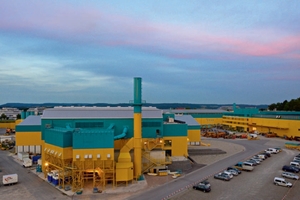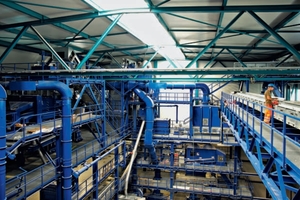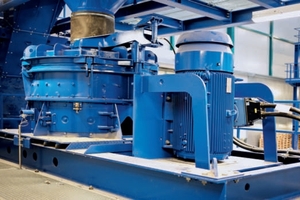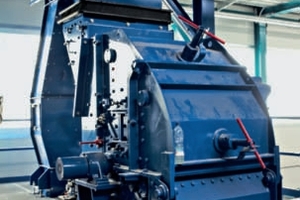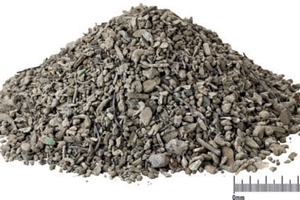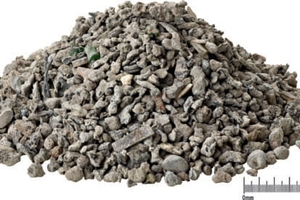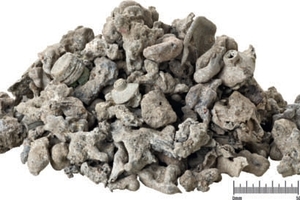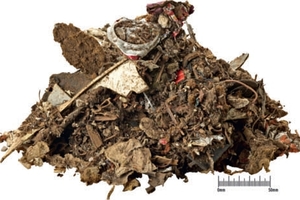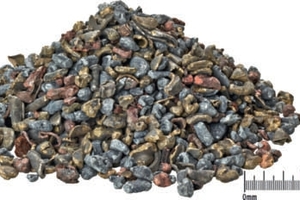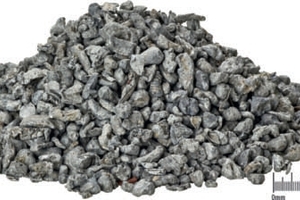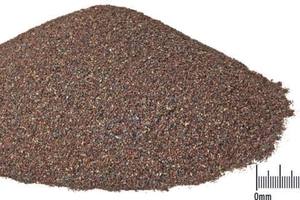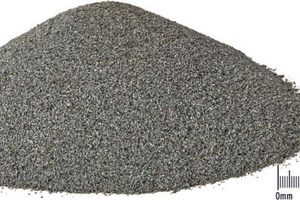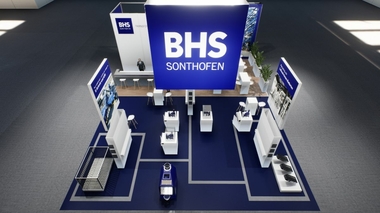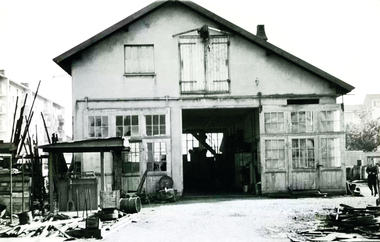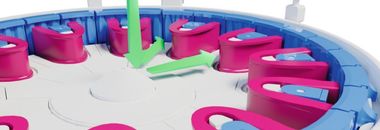Major contract from Switzerland: Non-ferrous metals in incinerator bottom ash are turned into valuable resources
BHS-Sonthofen planned and implemented a turnkey plant for the processing and refinement of metals derived from waste incineration plant slag and other metal-bearing fractions. Recycling machines from BHS are core components of both processing lines, as they allow for efficient shredding. This order from Switzerland is the largest ever for the Recycling Technology division.
BHS-Sonthofen was commissioned by Swissbased DHZ AG to build a complete plant for processing concentrated metals bound in incinerator bottom ash. The plant is also able to process and refine a wide range of metal-bearing materials. Recycling machines from BHS are core components of both processing lines, as they allow for efficient and selective shredding. This order from Switzerland is the largest ever for the Recycling Technology division.
The Swiss company DHZ AG, which is based in Lufingen near Zurich, operates a modern landfill and connected recycling plant. This plant is used to sort out resources and contaminants from the materials to be put into the landfill; rather than being deposited, these are then further processed. The supersort® facility for processing ash from waste incineration plants with a capacity of more than 100 000 tons of ash per year takes up a major portion of the recycling plant.
In order to further process the highly concentrated metals delivered by the supersort® facility, DHZ is setting up a new processing plant called supersort®metall in the neighboring town of Oberglatt. The annex will process non-ferrous metal concentrates originating from customer facilities and the supersort® and supersort®fein plants of DHZ. In addition, metalliferous fine fractions derived from shredding vehicle scrap and electronics devices will be further processed there. Lead from backstops from shooting stands can be processed as well. The goal is to attain high-quality heavy and light non-ferrous fractions from the concentrate that are to be sold to smelting works or industrial customers. Each line of the plant has a processing capacity of 10 tons/h.
DHZ specifically required a provider able to offer a dry processing method because wet processing would have incurred significant additional costs due to the high requirements associated with water and sludge treatment.
This was one of the reasons why the customer chose selective granulation technologies from BHS- Sonthofen as the central components for their new facility. Machine technology for the recycling industry is based on the method of impact crushing using impact mills.
BHS-Sonthofen had commissioned with delivering the machine technology as well as with implementing the entire new plant to full operability in 2016. The delivery scope comprises two entire lines – one for generating particle sizes from 8 to 100 mm and another for fine processing in the range of 0 to 10 mm. BHS had delivered all components, from feeding systems through to big bag loading stations. The list of components includes various BHS impact mills, sifting machines, zigzag sifters, cyclone separators, magnetic drum-type separators, separating tables, the entire conveyor system, a dust removal system, steel construction works as well as controlling and visualization.
Machines from BHS-Sonthofen include an impact mill of type PM 0806, one rotor impact mill of type RPMV 1113 and one rotor impact mill of type RPMX 1516. These machines process granulates from 8 to 100 mm and produce a fine output with sizes from 0 to 10 mm. As a final step, the processed material is cleanly separated by type – for example, according to light and heavy non-ferrous metals, ferromagnetic materials, oversized particles and dust – and then filled into big bags.
For Alfred Weber, Sales Director Recycling Technology at BHS-Sonthofen, this contract underscores the success of BHS’s strategy to offer a continuously increasing range of complete plants: “Our client greatly appreciates that we do not simply deliver individual machines, but rather provide a fully operable plant in turn-key condition.” Incidentally, the DHZ order is the largest the Recycling Technology division has ever received since its founding in 2001.
BHS Impact Mills
The BHS machine technology portfolio for the recycling sector comprises various horizontal- and vertical-shaft impact mills. All of them are based on the impact crushing principle. Recycling machines are selected according to the respective feed material and the required final quality. In the case of the BHS impact mill of type PM with a horizontal shaft, the feed material is inserted into the crushing chamber via an inlet shaft; there, the material is impacted by a high-speed rotor, which accelerates it against the impact walls. The material is pre-crushed in the upper section of the crushing chamber, while the lower section is where the required final particle size is attained. The BHS rotor impact mills of types RPMV and RPMX are high-performance impact crushers with a vertical shaft. The feed material is loaded into the machine from above at the center. When it impacts the rotor, the material is accelerated towards the outside by means of centrifugal forces; there, the horseshoe-shaped hammers engage it and throw it against the anvil ring, where it is crushed as a result of the impact and shearing forces. Once the material has been sufficiently reduced in size, it exits the crushing space through the ring gap and falls down through two outlet chutes.

